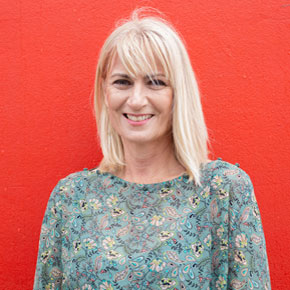Trish Versteegen – City of Fremantle T.A.G. Hungerford Award Shortlist

Read an interview with City of Fremantle T.A.G Hungerford Award shortlisted writer Trish Versteegen plus an extract from her novel The Seventh Sister.
Describe your manuscript in your own words.
The Seventh Sister is a coming-of-age story alternately set in 1970s Perth and World War II Holland, told through the parallel experience of a teenage girl and her mother. The story speaks of the age-old obstacles and dangers involved around emergent female sexuality. It describes difficulties that are so common to mothers and daughters, but often not shared and managed alone. The story explores themes of the meaning of home, the value of connection and the weight of the past.
What inspired you to write it?
The inspiration to write this story came from personal and family experiences, and an interest in how things change yet stay the same for young women in a patriarchal world. Memories of my sister’s hospitalisation as a teenager and its profound impact on both her and the family was a starting point for the story. My parents’ Dutch heritage, their experience during the Second World War and the way they embraced a new life in Australia were a further source of inspiration.
How long have you been working on it?
I have been working on the manuscript for a very long time! I first began to develop the story through a creative writing course when my youngest child was small, and he has turned eighteen this year!
What does it mean to you to make the shortlist of the 2018 City of Fremantle T.A.G. Hungerford Awards?
The phone call to say I had made it to the shortlist for the T.A.G Hungerford Award was something I had not expected, but had definitely dreamed about. I am very excited to have been granted this opportunity, being well aware of how difficult it is to have a first manuscript acknowledged. Having my manuscript validated as being worthy of being read and shared just makes me so happy and inspires me to continue writing.
From The Seventh Sister by Trish Versteegen
Eva 1943
From her seat in the cellar, Eva looked over at Harry, who was shuffling a deck of cards so they fanned out from his fingers like an open bird’s wing. Just when it seemed they would flutter out to the ground, he flicked a wrist and the cards obediently flew back into his palm. She realised Harry was frustrated too. He hadn’t planned on spending his days in the workshop, either as apprentice or general dogsbody, it being uncertain at this point which category he fell into. He skived off at any chance, disappearing on errands for much longer than required, provoking their father’s irritation. As time went on, Harry began talking about action and resistance. That made their father even madder.
‘Thinks he knows it all already!’ Wilbert would bluster. ‘Just a goddamned puppy!’
Then Harry would get mad back. Wilbert thought that action and resistance were matters for the adults of the village, the men. But Eva saw what their father didn’t, or wouldn’t see. It was clear to her that Harry considered himself a man already. He had told her that the old men and their methods were redundant. He said it was time for the new blood to step up. It was time for change.
It hadn’t been so long before that Eva had wished fervently for change. Then it had seemed as though she was to be forever trapped in the boring sameness of the village, like her poor little goat, Koekje, who was tethered on a short rope that confined her to the backyard each and every day. Eva had longed for all the ordinary things to be whipped up, broken out, and turned around. Dark moods swept over her then, like soaking waves. When Harry noticed, he teased her mercilessly, instead of being sympathetic. He couldn’t know how incredibly furious that made her. She felt as if she could hurt him, or even kill him sometimes. But that didn’t seem to bother him one bit — he just continued on as usual. It wasn’t fair that he could get to her, and not the reverse. He would always be older, more sophisticated and, as a boy, free in a way that she was not and would never be. Then, she both loved and hated her brother absolutely.
These days it seemed the foolish things she had wished for had come true all too soon. Everything of old had been upturned, thrown about and broken. It was too late, and even more useless to wish for things to go back to the way they were before, but she did, anyway. Meanwhile, the family, like everyone else, had no choice but to adjust and adapt to increments of sacrifice and deprivation. Their ears became accustomed to stories of woe that previously would have been shocking. Identity papers, ration books and curfew orders governed their everyday lives. Eva knew her mother prayed more than ever before, thanking God that the more terrible things remained beyond them, and happened to other people. Of course, she prayed for those people, too. For an end to all the misfortune.
Johanna had always been the anxious kind, but was more so lately. She gathered in worries like the knitting she attacked every night, bending over it in the lamplight. Eva noticed the pinched look on her mother’s face that aged her, how rarely she smiled, and how often the quick tears would come. Speaking less and praying more, Johanna threw herself into a kind of domestic atonement, hardly pausing between one chore and the next. At night, she took her pew in the cellar corner. Wreathed by the shadows of the carbide light, her lengthy prayers were accompanied by the soft clicking of knitting needles or rosary beads.


